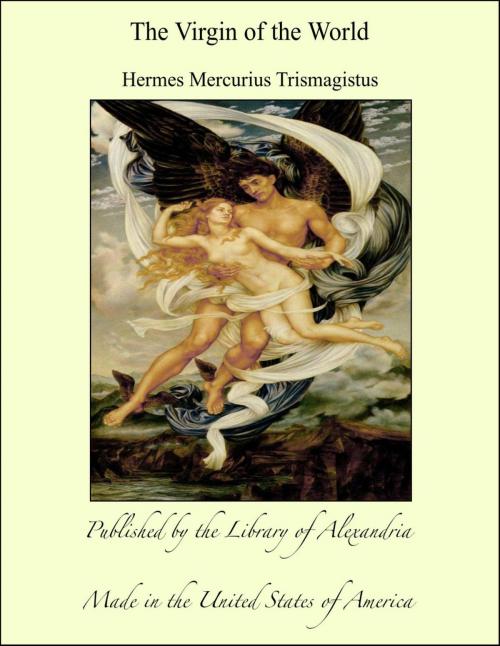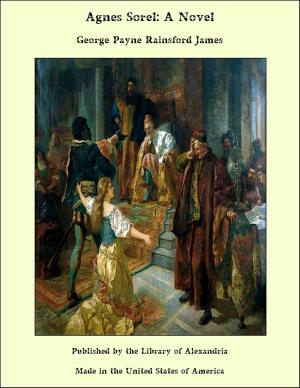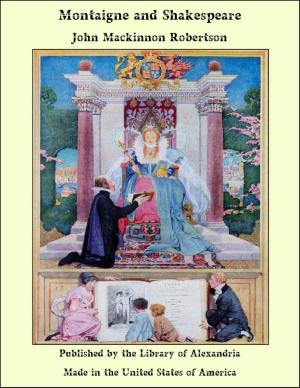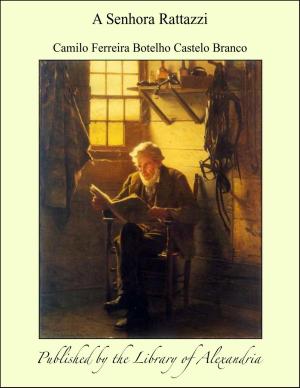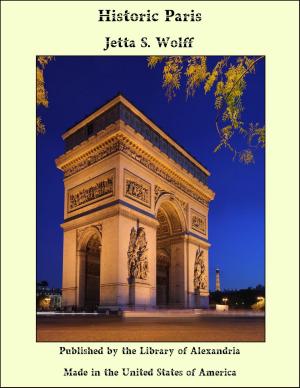| Author: | Hermes Mercurius Trismagistus | ISBN: | 9781465580245 |
| Publisher: | Library of Alexandria | Publication: | March 8, 2015 |
| Imprint: | Language: | English |
| Author: | Hermes Mercurius Trismagistus |
| ISBN: | 9781465580245 |
| Publisher: | Library of Alexandria |
| Publication: | March 8, 2015 |
| Imprint: | |
| Language: | English |
HAVING thus spoken, Isis first pours out for Horos the sweet draught of immortality which souls receive from the Gods, and thus begins the most holy discourse. Heaven, crowned with stars, is placed above universal nature, O my son Horos, and nothing is wanting to it of that which constitutes the whole world. It is necessary, then, that all nature should be adorned and completed by that which is above her, for this Order could not proceed from below to above. The supremacy of the greater mysteries over the lesser is imperative. Celestial order reigns over terrestrial order, as being absolutely determined, and inaccessible to the idea of death. Wherefore, the things below lament, being filled with fear before the marvellous beauty and eternal permanence of the heavenly world. For, indeed, a spectacle worthy of contemplation and desire were these magnificences of heaven, revelations of the God as yet unknown, and this sumptuous majesty of night illumined with a penetrating radiance, albeit less than that of the sun, and all these other mysteries which move above in harmonious cadence, ruling and maintaining the things below by secret influences. And so long as the Universal Architect refrained from putting an end to this incessant fear, to these anxious investigations, ignorance enveloped the universe. But when He judged good to reveal Himself to the world, He breathed into the Gods the enthusiasm of love, and poured into their mind the splendour which His bosom contained, that they might first be inspired with the will to seek, next with the desire to find, and lastly with the power to readjust. Now, my wondrous child Horos, all this could not happen among mortals, for as yet they did not exist; but it took place in the universal Soul in sympathy with the mysteries of heaven. This was Hermes, the Kosmic Thought. He beheld the universe of things, and having seen, he understood, and having understood, he had the power to manifest and to reveal. That which he thought, he wrote; that which he wrote, he in great part concealed, wisely silent. and speaking by turns, so that while the world should last, these things might be sought. And thus, having enjoined upon the Gods, his brethren, that they should follow in his train, he ascended to the stars. But he had for successor his son, and the heir of his knowledges, Tat, and a little later, Asclepios, son of Imouthè, by the counsels of Pan and Hephaistos,1 and all those for whom sovereign Providence reserved an exact knowledge of heavenly things. Hermes then justified himself in the presence of those who surrounded him, in that he had not delivered the integral theory to his son, on account of his youth. But I, having arisen, beheld with mine eyes, which see the invisible secrets of the beginnings of things,2 and at length, but with certainty, I understood that the sacred symbols of the Kosmic elements were hidden near the secrets of Osiris. Hermes returned to heaven, having pronounced an invocatory speech.
HAVING thus spoken, Isis first pours out for Horos the sweet draught of immortality which souls receive from the Gods, and thus begins the most holy discourse. Heaven, crowned with stars, is placed above universal nature, O my son Horos, and nothing is wanting to it of that which constitutes the whole world. It is necessary, then, that all nature should be adorned and completed by that which is above her, for this Order could not proceed from below to above. The supremacy of the greater mysteries over the lesser is imperative. Celestial order reigns over terrestrial order, as being absolutely determined, and inaccessible to the idea of death. Wherefore, the things below lament, being filled with fear before the marvellous beauty and eternal permanence of the heavenly world. For, indeed, a spectacle worthy of contemplation and desire were these magnificences of heaven, revelations of the God as yet unknown, and this sumptuous majesty of night illumined with a penetrating radiance, albeit less than that of the sun, and all these other mysteries which move above in harmonious cadence, ruling and maintaining the things below by secret influences. And so long as the Universal Architect refrained from putting an end to this incessant fear, to these anxious investigations, ignorance enveloped the universe. But when He judged good to reveal Himself to the world, He breathed into the Gods the enthusiasm of love, and poured into their mind the splendour which His bosom contained, that they might first be inspired with the will to seek, next with the desire to find, and lastly with the power to readjust. Now, my wondrous child Horos, all this could not happen among mortals, for as yet they did not exist; but it took place in the universal Soul in sympathy with the mysteries of heaven. This was Hermes, the Kosmic Thought. He beheld the universe of things, and having seen, he understood, and having understood, he had the power to manifest and to reveal. That which he thought, he wrote; that which he wrote, he in great part concealed, wisely silent. and speaking by turns, so that while the world should last, these things might be sought. And thus, having enjoined upon the Gods, his brethren, that they should follow in his train, he ascended to the stars. But he had for successor his son, and the heir of his knowledges, Tat, and a little later, Asclepios, son of Imouthè, by the counsels of Pan and Hephaistos,1 and all those for whom sovereign Providence reserved an exact knowledge of heavenly things. Hermes then justified himself in the presence of those who surrounded him, in that he had not delivered the integral theory to his son, on account of his youth. But I, having arisen, beheld with mine eyes, which see the invisible secrets of the beginnings of things,2 and at length, but with certainty, I understood that the sacred symbols of the Kosmic elements were hidden near the secrets of Osiris. Hermes returned to heaven, having pronounced an invocatory speech.
